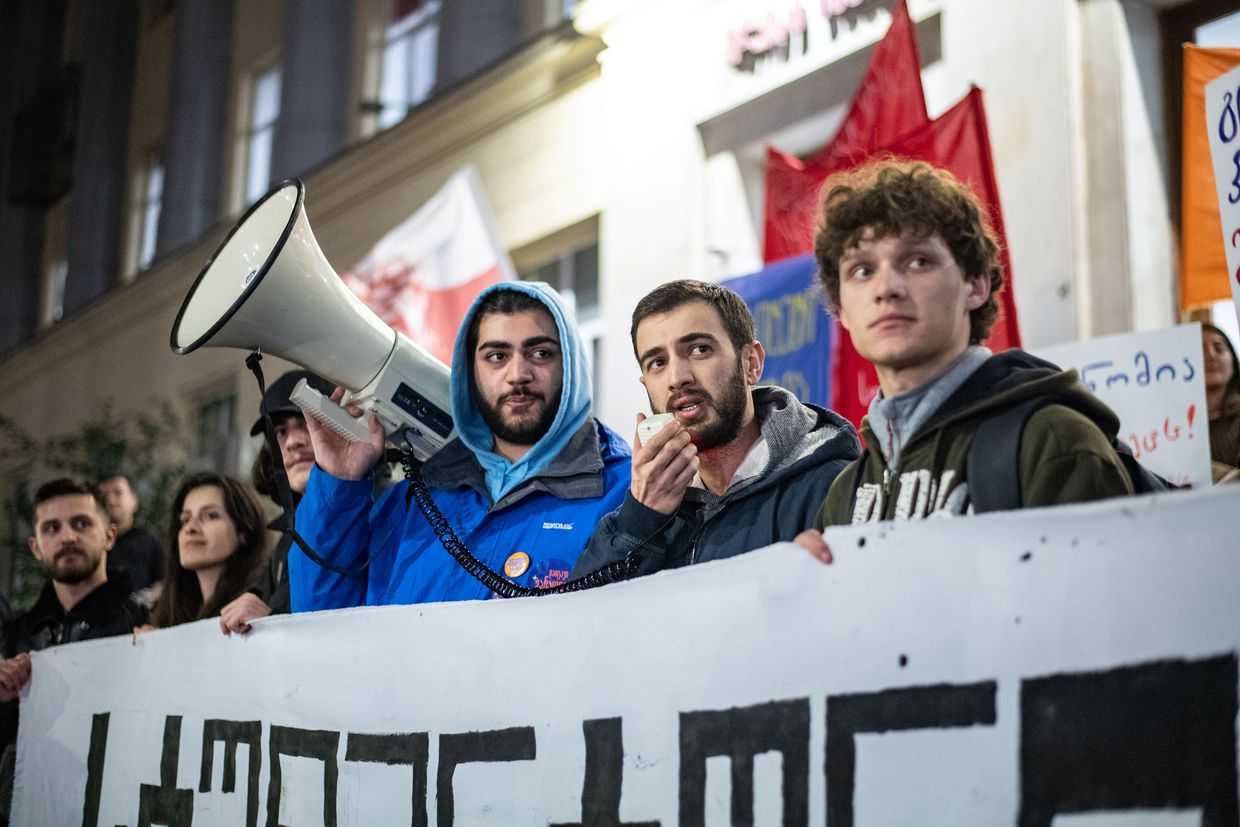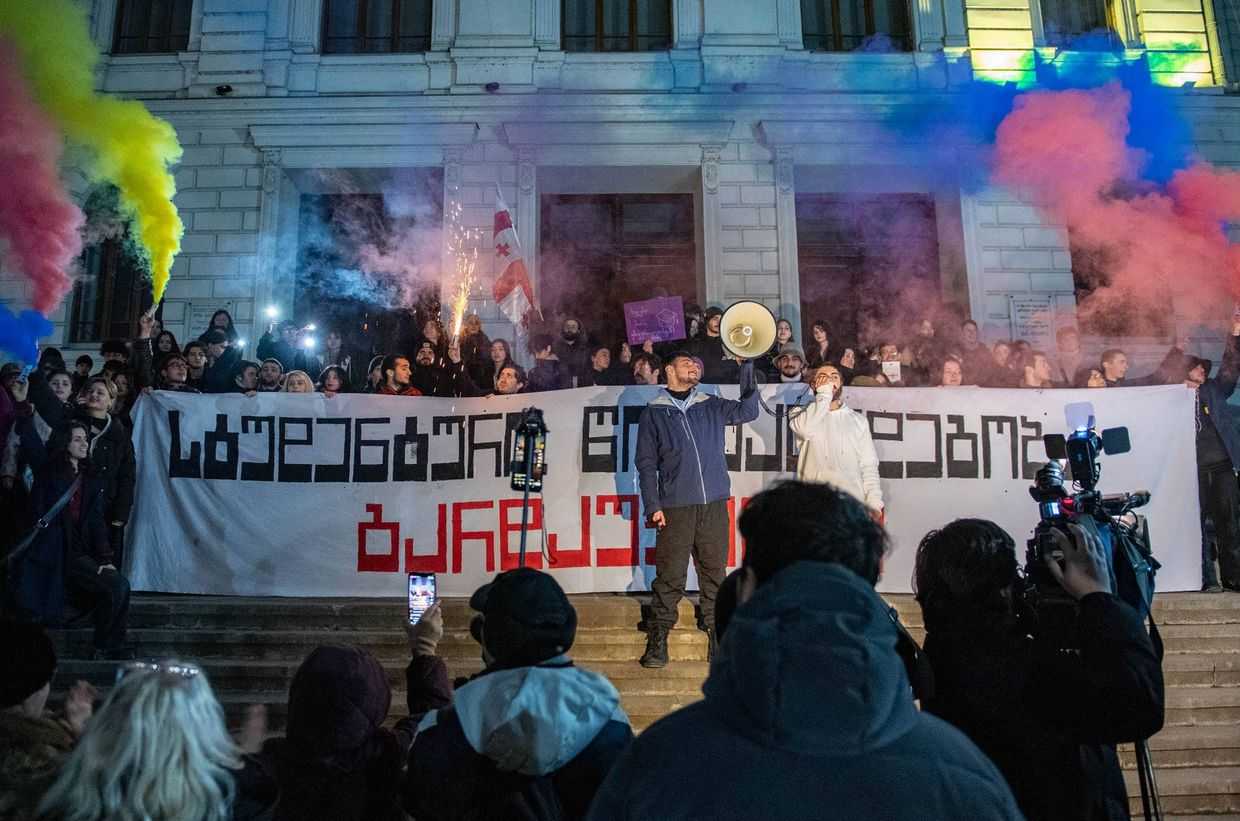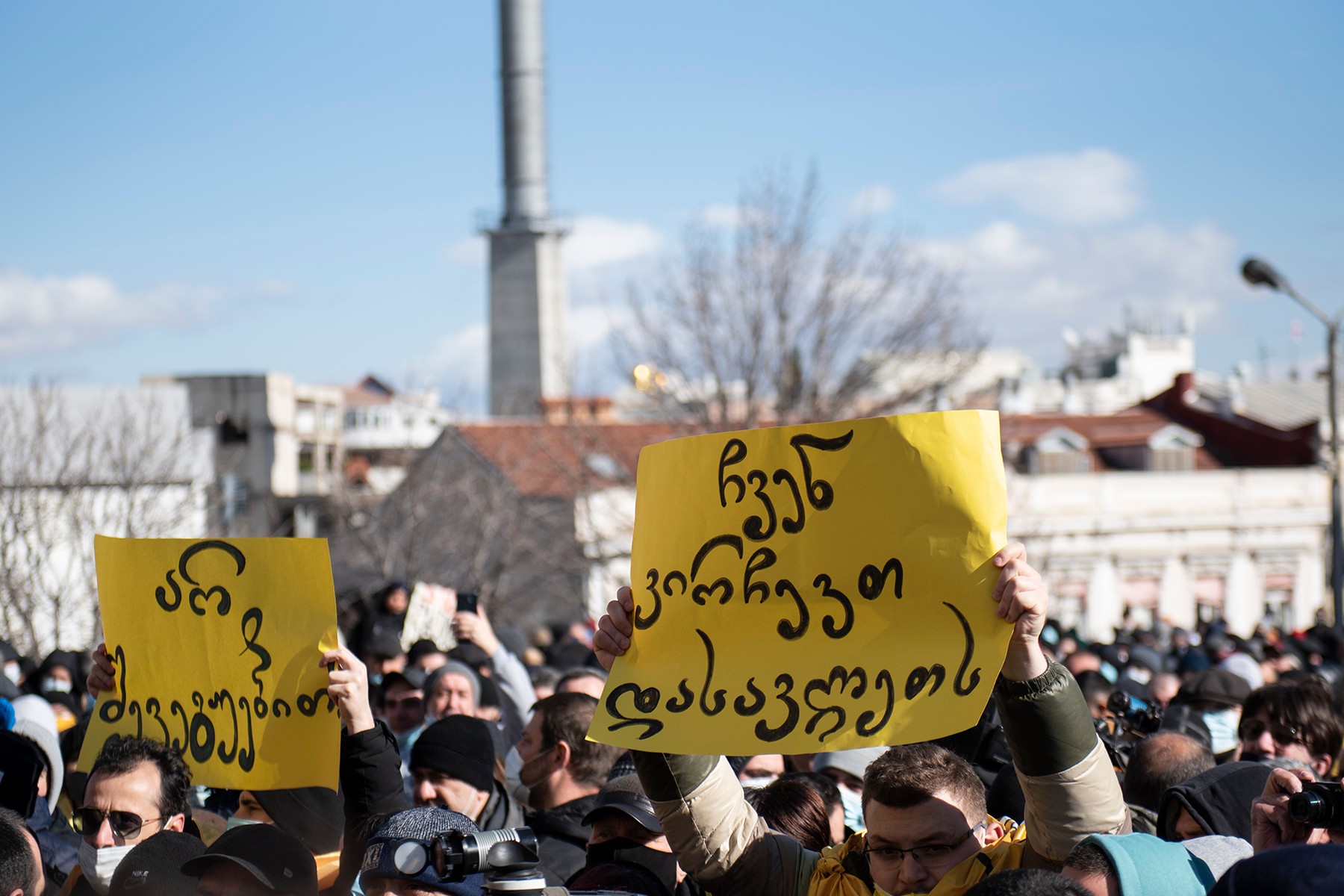
The Georgian government is facing a new wave of protests and international condemnation over a raid on the opposition United National Movement (UNM) offices in Tbilisi.
Several thousand people gathered outside the government offices on Tuesday afternoon to protest the move.
The demonstration was attended by most major opposition leaders, including those of the European Georgia, Lelo, Labour, and Strategy Aghmashenebeli parties, as well as Nino Burjanadze, who announced another protest march on Friday.
Police moved into the UNM offices early on Tuesday morning to arrest the party’s leader, Nika Melia, for refusing to post bail.
[Read more on OC Media: Melia arrested as police raid UNM offices in Tbilisi]
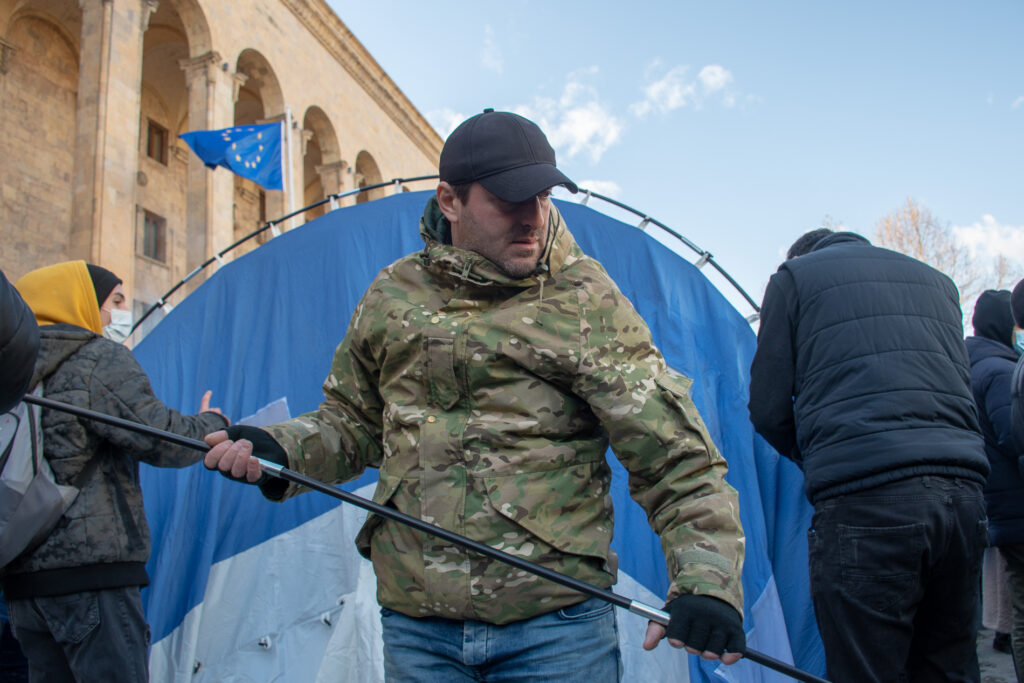
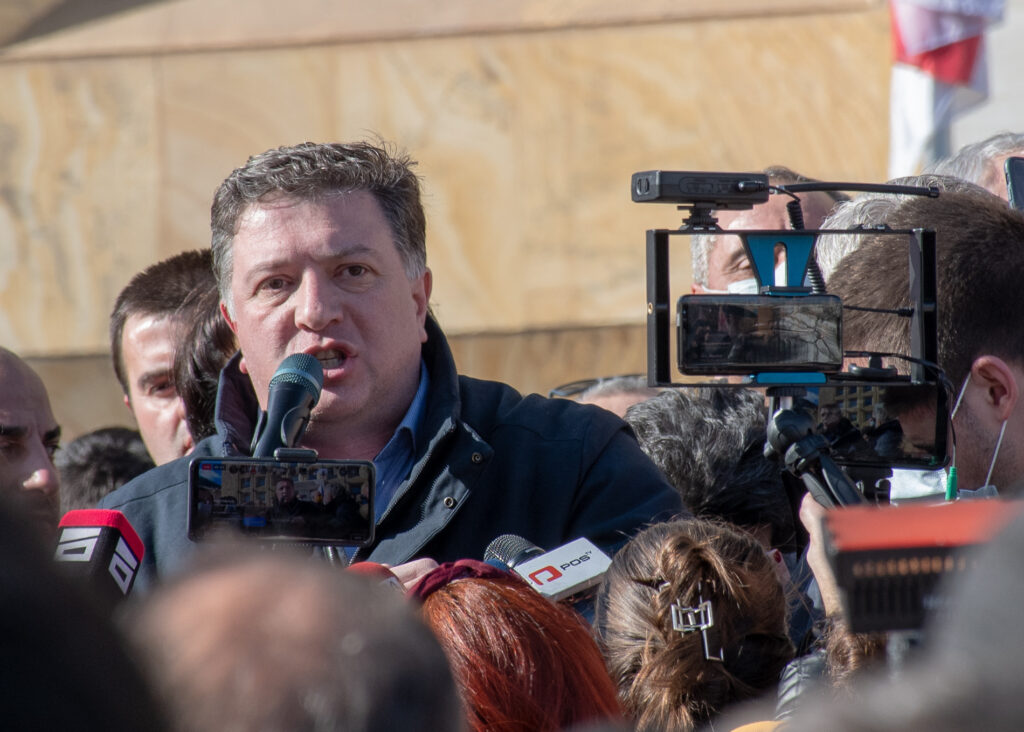
The raid was one of the first actions taken by newly appointed Prime Minister Irakli Gharibashvili, a hardline anti-UNM figure who replaced Giorgi Gakharia after the latter objected to Melia’s arrest. It was the latest escalation in a political crisis that has engulfed Georgia since 31 October’s parliamentary elections.
[Read more: Gharibashvili focuses on ‘terrorist opposition’ in combative confirmation speech]
Several Western countries were quick to respond to the raid with pointed criticism towards the Georgian authorities.
In an unusually strongly-worded statement, the US Embassy in Georgia said that they were ‘dismayed by the polarising rhetoric from Georgia’s leadership at a time of crisis’.
‘Force and aggression are not the solution to resolving Georgia’s political differences. Today, Georgia has moved backward on its path toward becoming a stronger democracy in the Euro-Atlantic family of nations’.
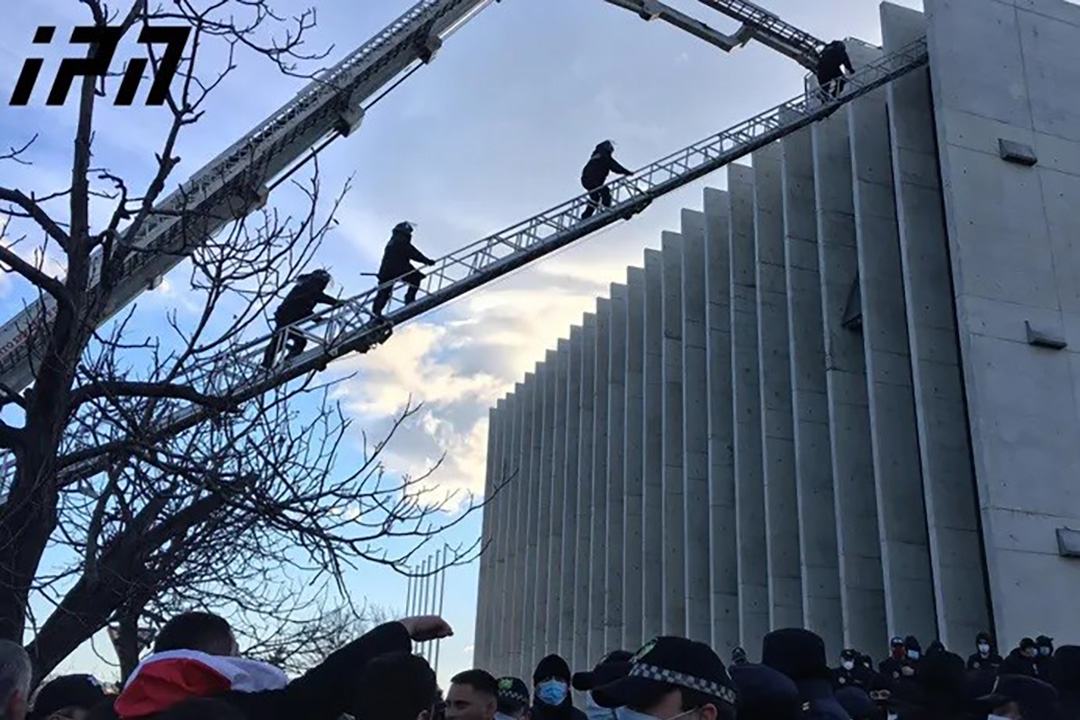
James Appathurai, the NATO Secretary General’s Special Representative for the Caucasus and Central Asia, joined others on Tuesday in expressing his concern.
‘NATO expects Georgia, as a close partner and Aspirant, to maintain the Euro-Atlantic democratic standards which it has worked so hard to meet and maintain’, he wrote on Facebook.
The Estonian Foreign Ministry’s reaction was also among the strongest, condemning the ‘violent storming of the opposition party office’. They called on the government and the opposition groups to ‘to exercise restraint and return to political dialogue’.
Georgian officials have remained defiant.
Parliamentary chair Irakli Kobakhidze and Prime Minister Irakli Gharibashvili were both quick to defend the raid. Both called Melia a ‘criminal’.
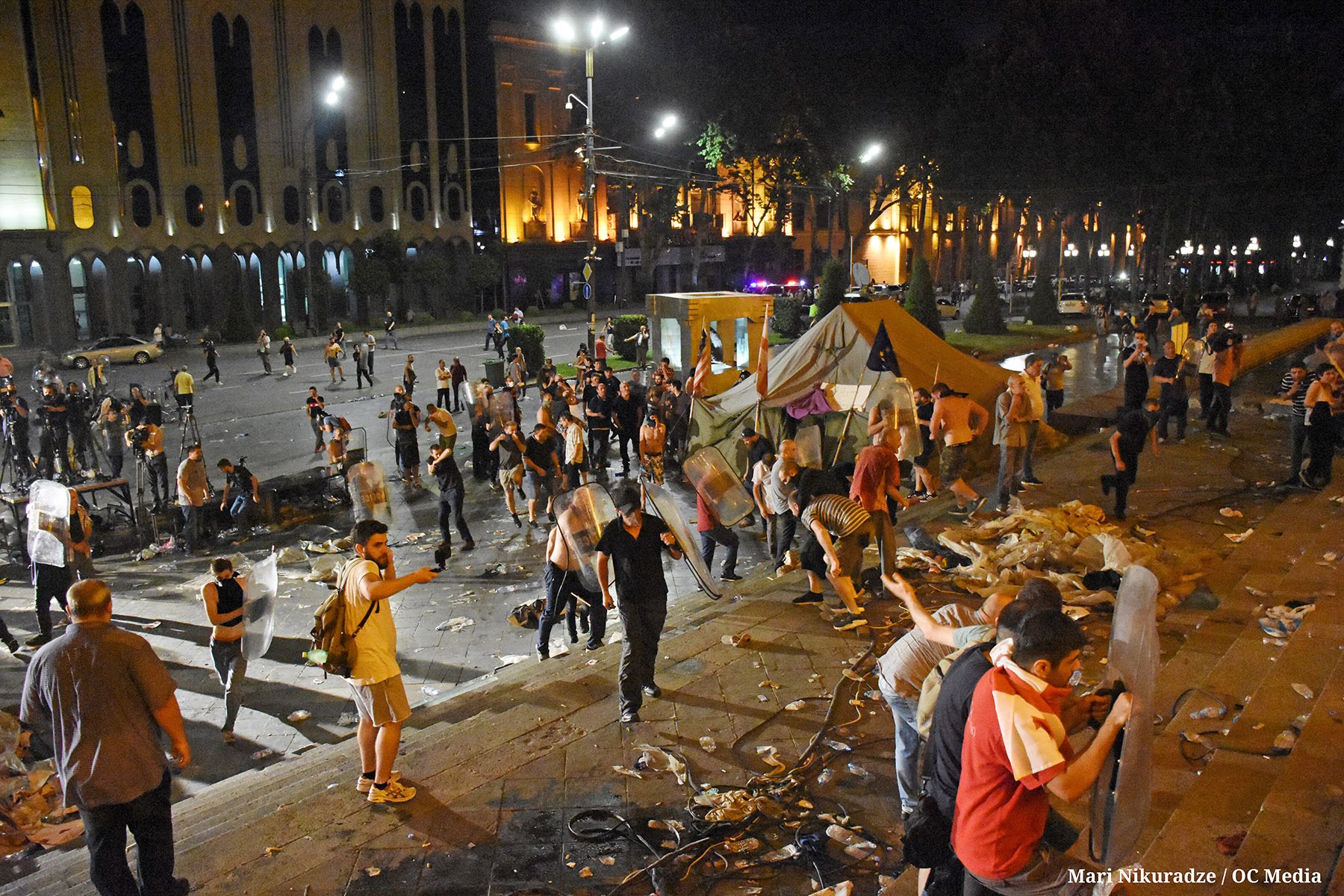
Gharibashvili said the public had witnessed that Georgia was a ‘strong’ country ‘ruled by law’, and that Melia’s detention was conducted to the ‘highest standards’.
Kobakhidze took time to recount Melia’s previous problems with the law, including his latest refusal to pay the bail that preceded the order to detain him.
‘He did not pay. He was detained, or to put it more accurately, he detained himself.’
Kobakhidze went on to call Melia, his party, and allies of the UNM ‘Bolsheviks of the Red Army’, a reference also often evoked by the opposition to condemn the police actions earlier that morning.
Calls for snap elections
Criticism of the authorities has also come from within Georgia.
Twenty-two Georgian rights groups, including the Open Society Georgia Foundation, Georgian Democracy Initiative, and Human Rights Centre (HRIDC), condemned Melia’s arrest in a joint statement. They underlined that the order to arrest him was being heard in the Appeals Court.
‘The Georgian Government has not demonstrated a real will to defuse the situation at any stage of the deterioration of the crisis’, the groups said. ‘Through this latest step, it has moved toward further escalation of tension, which could have ruinous consequences for the country.’
Several former Georgian Dream officials have also been critical of Melia’s arrest, including former Prime Minister Irakli Kvirikashvili and former Foreign Minister Mikheil Janelidze, who called for snap elections.
Opposition parties have been demanding new elections since 31 October’s parliamentary elections, where several violations were reported during the vote and count.
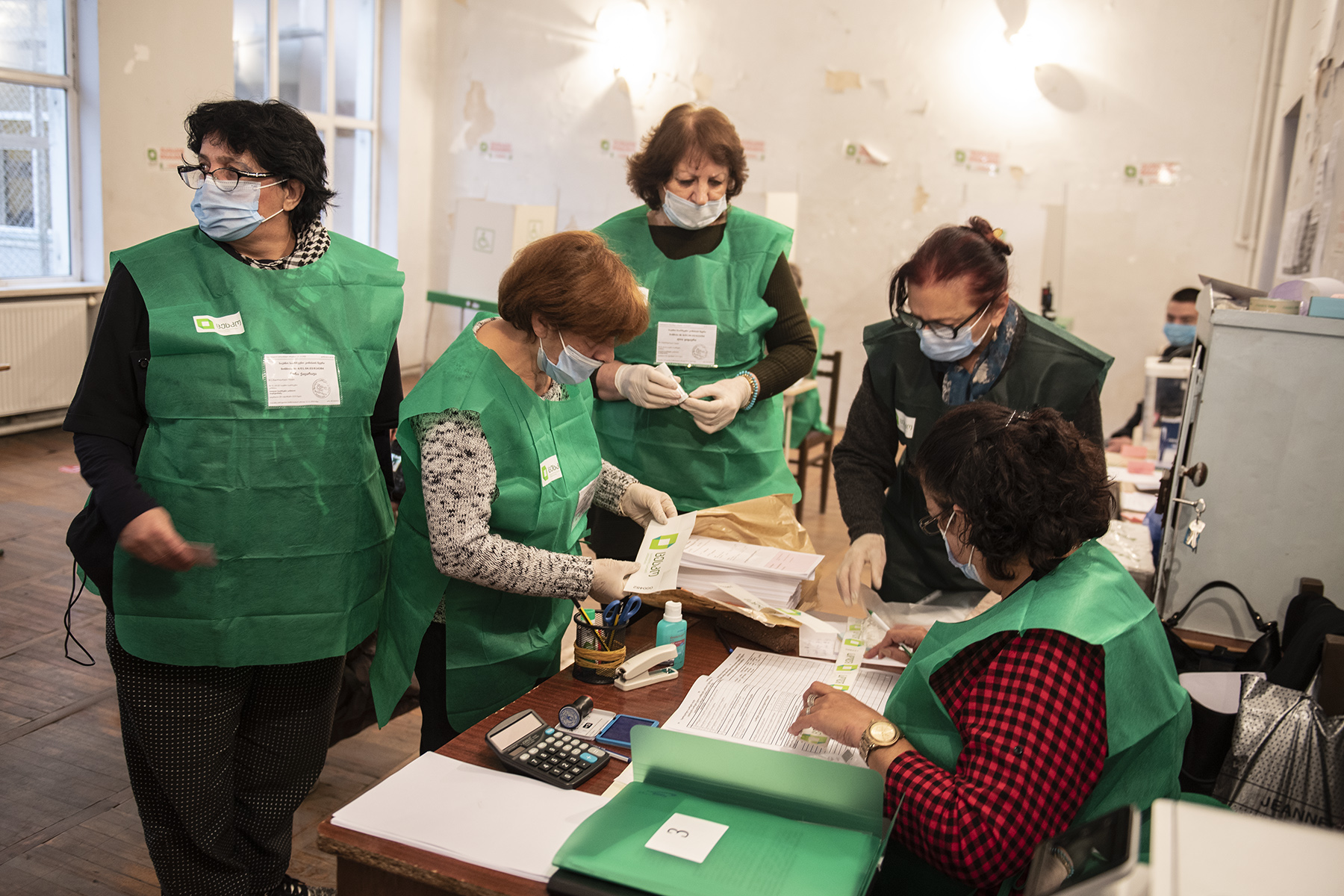
Georgia’s Public Defender Nino Lomjaria called the detention ‘concerning’, adding that they would closely monitor and follow up with the cases of all detainees.
The Interior Ministry said they had detained 21 people, including UNM member Gia Baramidze and Zuka Berdzenishvili from anti-government group Shame, for disobeying police.
The Interior Ministry also confirmed that they had retrieved servers from the UNM’s offices but did not clarify within which investigation they did so.



